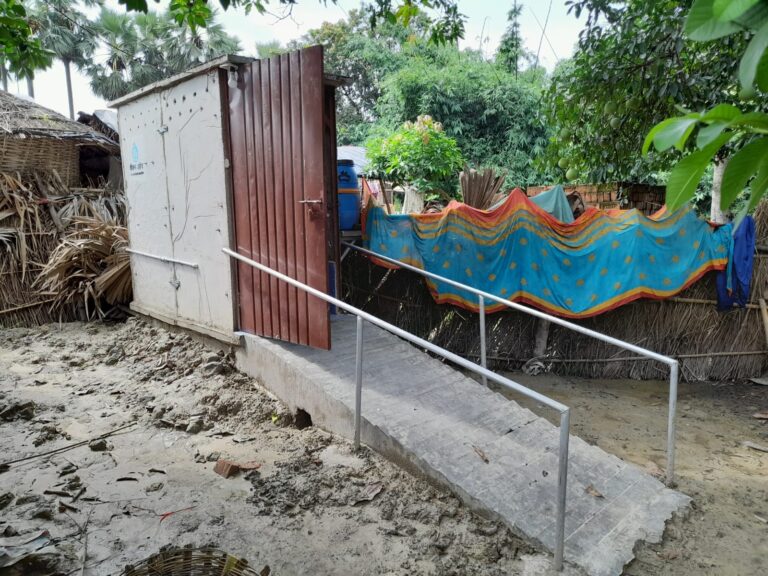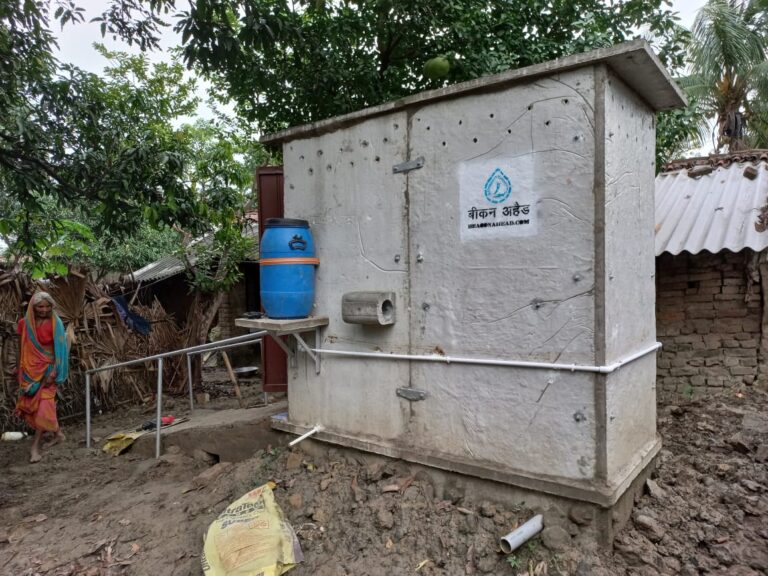History and Background
For the last 15 years, scientists have been rediscovering and harnessing Nature’s sanitation experts.
Researchers such as Claire Furlong and Walter Gibson in the UK, and Steven Mecca in the USA, have tested and proved that earthworms are very efficient in simple systems that take in human waste or sewage, and produce mainly worm castings and water. Real world tests of rural toilets were implemented by them and teams at PriMove, Oxfam, GSAP and others.
Worm castings are valuable for fertilizing soils, so not only are bio-filters based on earthworms extremely effective sanitation tools, but they are also very environmentally friendly, because their outputs are useful for irrigation and fertilizing soil.
For our work in low-income communities, these earthworm-powered bio-filters are extremely affordable, because the toilet produces worm castings, which are great fertilizers. The average bio-filter is maintenance free and requires no external power, and it fills up only after 5 or 10 years, depending on the size of the family using the toilet.
With other toilet systems, such as septic tanks or leach pits (soak pits), there is an added expense every year or two, to have someone empty the tank or pit. This is a difficult, smelly job, and it’s is therefore fairly expensive. The contents removed from the septic tank or leach pit are often dumped into a field or river, so the sanitation problem has not been solved, just moved away from the household.
In contrast, the worm-composting bio-filter is easy to empty, since the worm-compost has a nice earthy smell. The worm compost (or vermi-compost) can be put in a hole in the ground and buried, to fertilize a new tree. We recommend not using the toilet for 24 hours before emptying the bio-filter, to ensure that the worms have a day to remove all human waste in the bio-filter.
Development
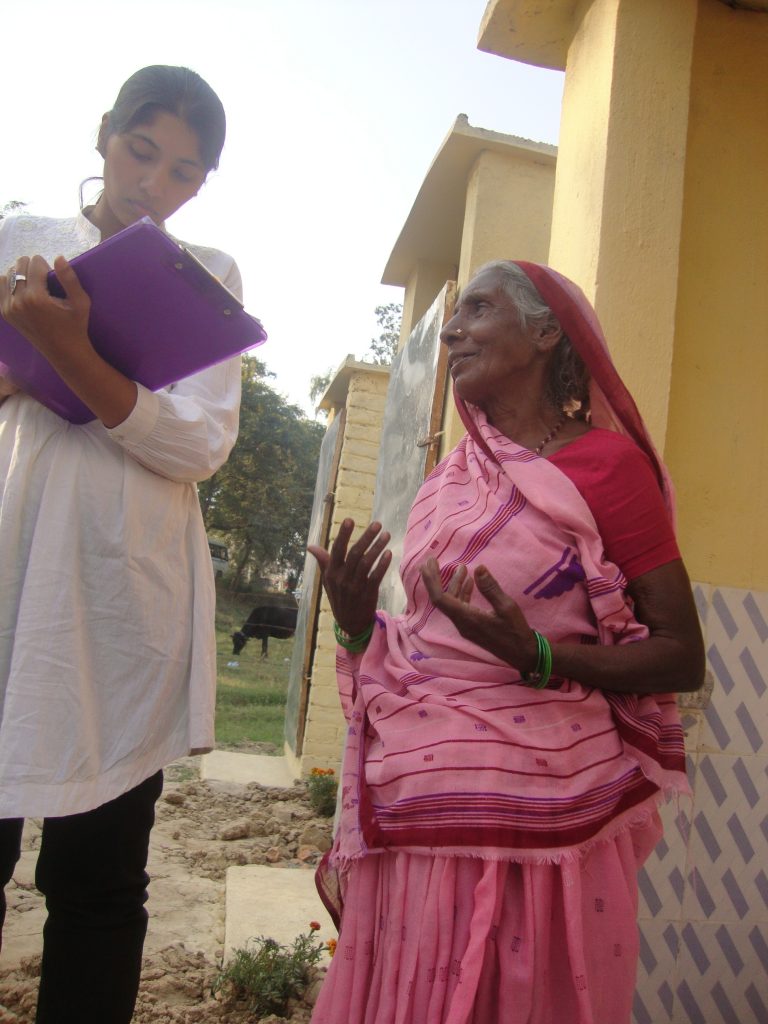
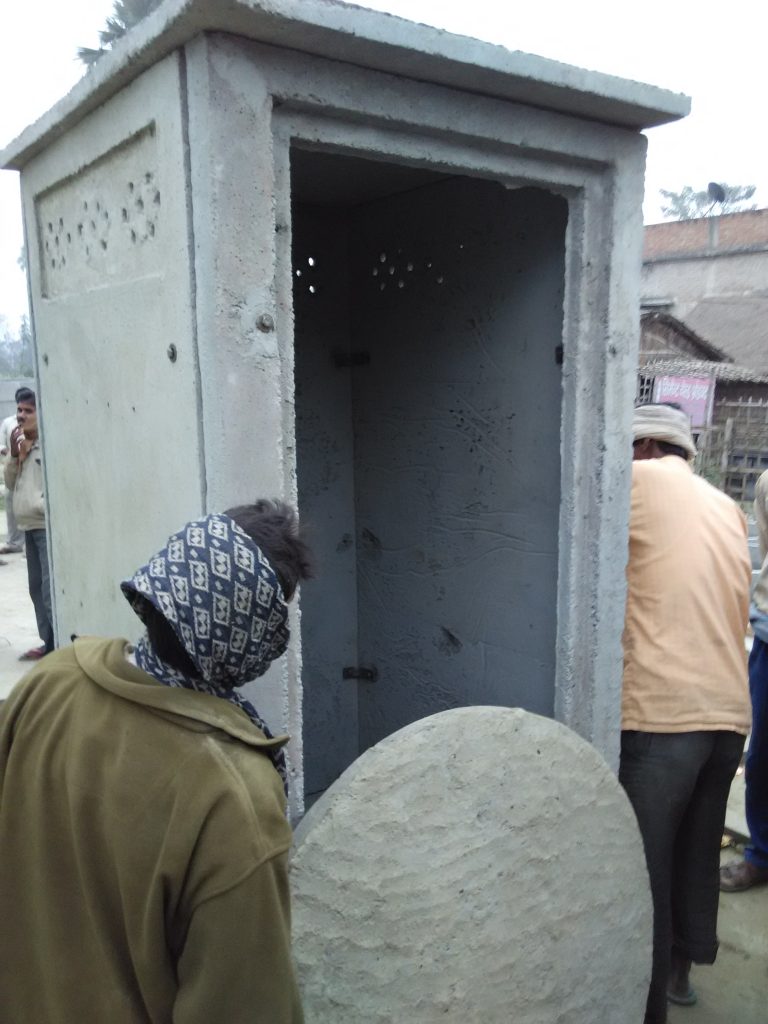
In many areas, there are few toilets, and no sewer pipes. Worm-composting toilets give people access to a private toilet and on-site sewage treatment.
This self-contained treatment gives households and communities an effective and low-cost way to install toilets without the complexity of sewage treatment and drain pipes.
Earthworm-powered bio-filters can provide toilets in areas where there are no other good options for toilets.
We’re so enthusiastic about this low-cost, environmentally friendly technology that we made a documentary about it.
The full version below shows all the different sizes the bio-filters can be, from single toilets for a family, larger filters for apartment buildings or schools, to full sewage treatment plants.
The shorter version of the documentary has been edited to about 5 minutes, and covers the highlights of the full 24 minute long documentary.
The outputs from the bio-filters are water and vermi-compost. Both are valuable, for watering the soil and fertilizing the earth. Hence the title of the documentary is, “Wealth from Waste”.
Our short documentary about the incredible combination of bio-filters, powered by worm-composting, and toilets and sewage treatment.
Our long Documentary about amazing new worm-composting toilets and sewage treatment.
PriMove, in Pune, India, has scaled up this technology to many different sizes of sewage treatment plants.
This sewage treatment plant treats 500,000 liters of raw sewage every day.
Beacon Earthworm Sewage Treatment (BEST) Toilets
When Beacon AHEAD Institute combined the worm-composting sewage treatment above with the strong Rapido precast concrete panel toilet design, we built the first Beacon Earthworm Sewage Treatment (BEST) toilets.
On the top half of the toilet, we assemble the long-lasting concrete walls and roof, and then add tiles, shelves, water tanks, etc. This superstructure is quick to assemble and strong enough to allow a buffalo to scratch her back on the corner of the walls.
The lower half is the toilet substructure, which holds a large bio-filter and earthworm bed that provides on-site, affordable treatment of human waste. The human solid waste in the toilets is converted into worm compost in about 12 hours. Urine and water are treated in the bio-filter layers below the worm bed.
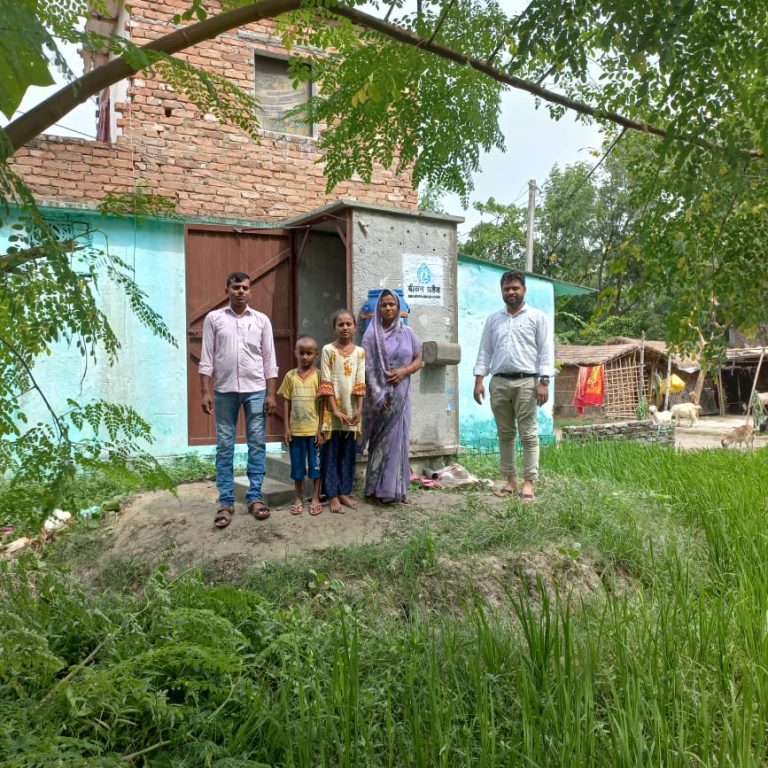
Building BEST Toilets in 2022 and 2023:
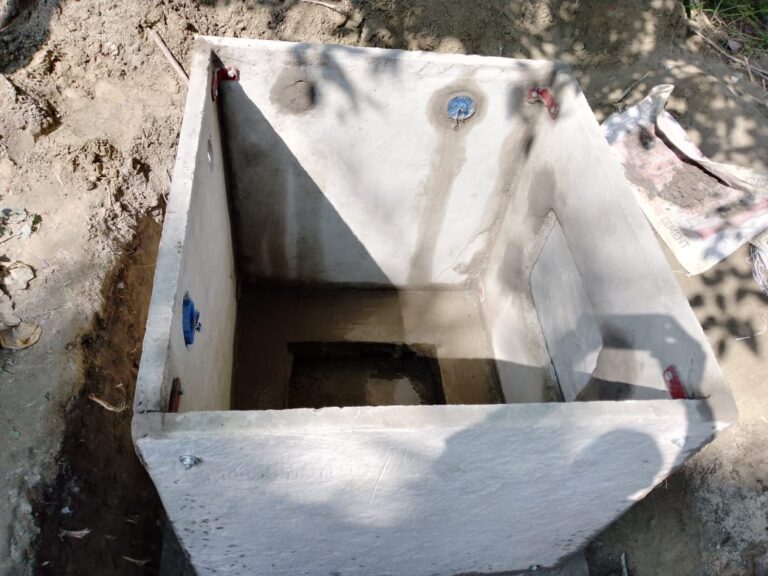
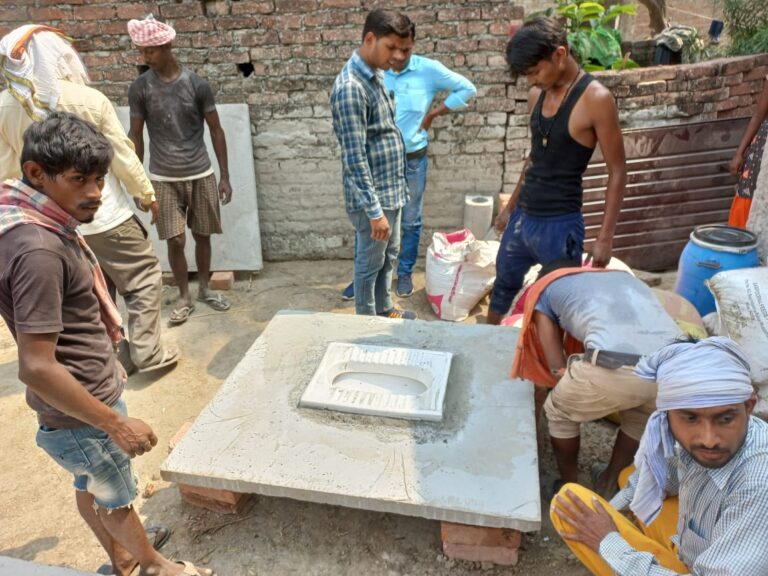
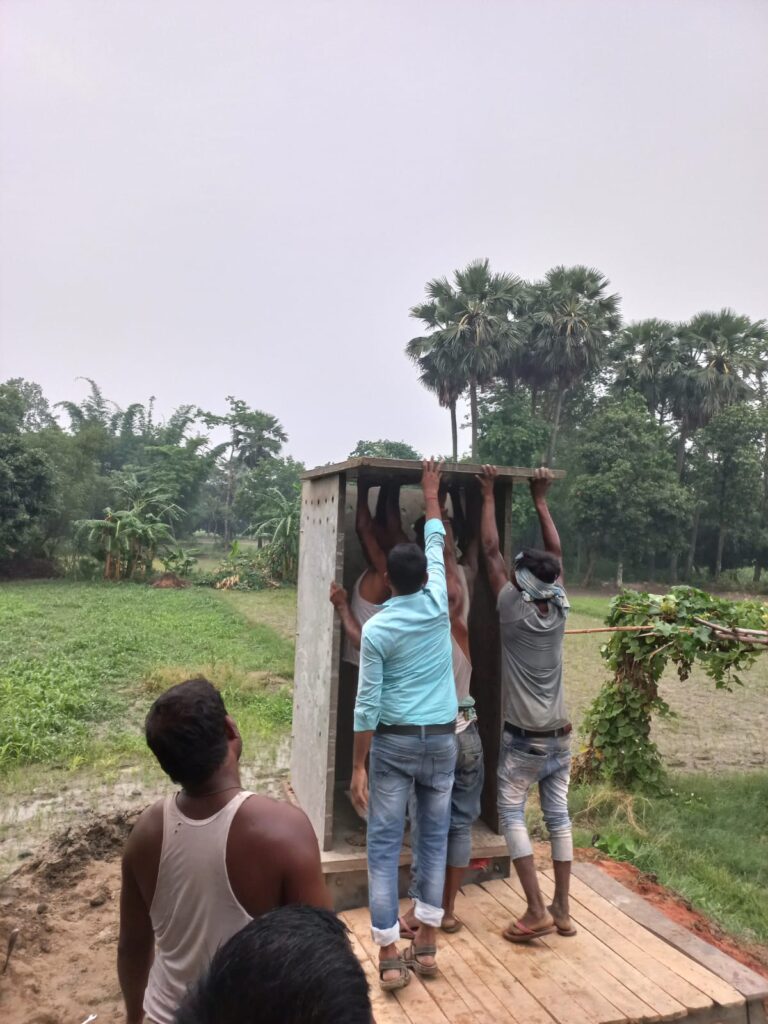
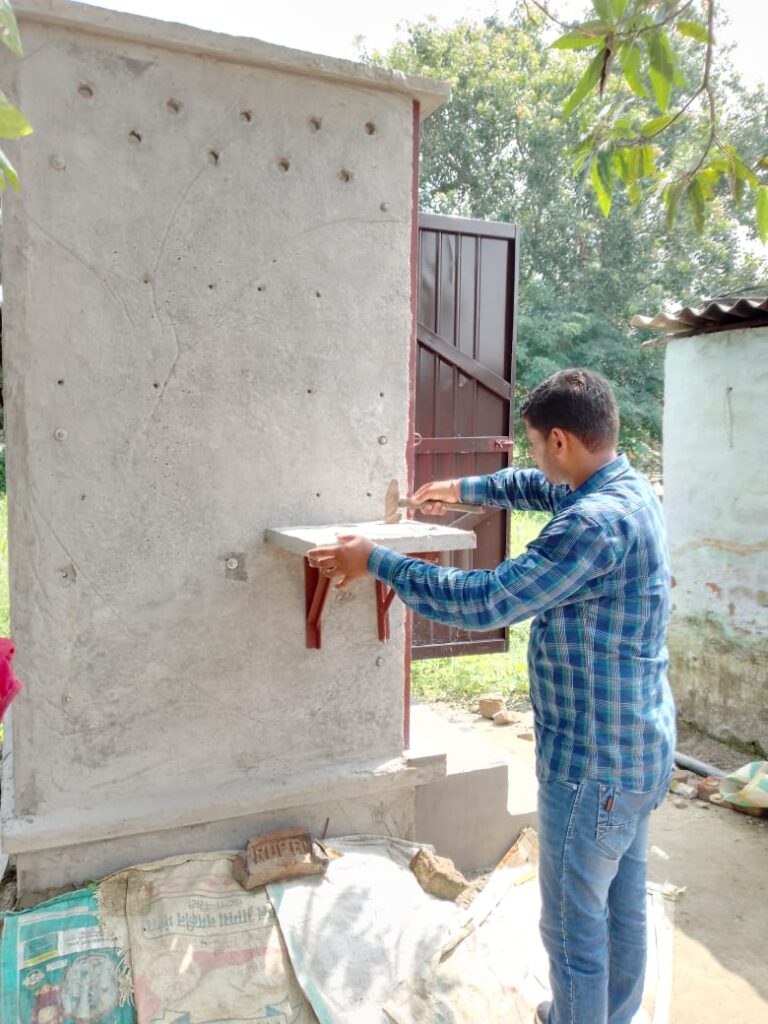
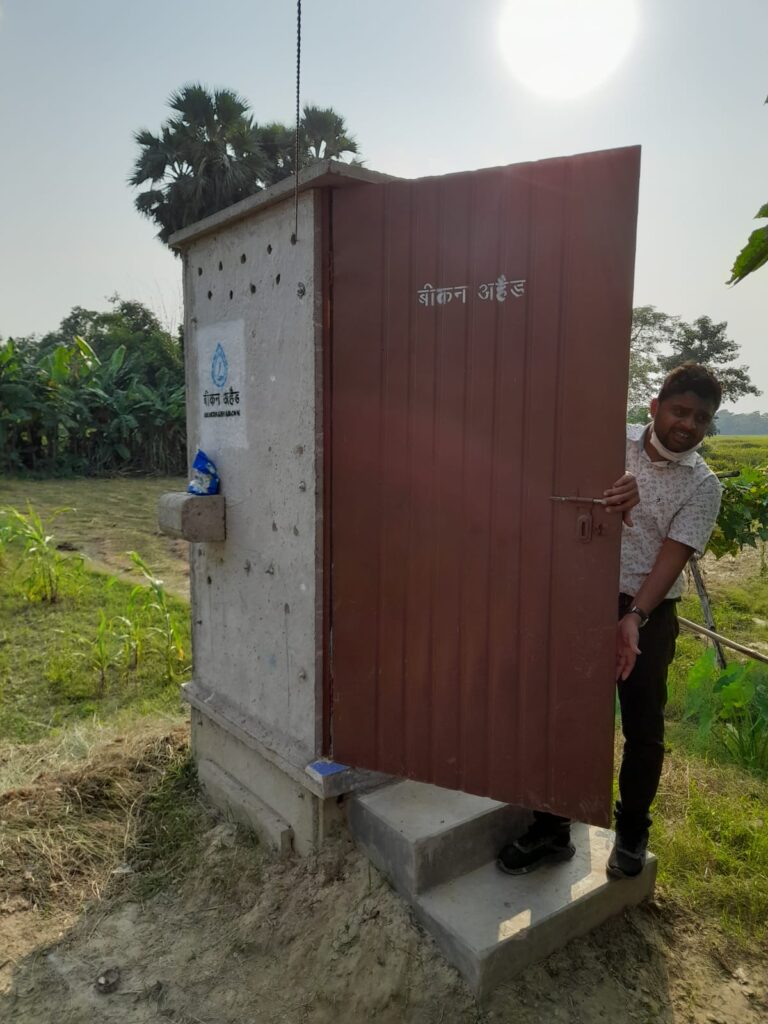
The benefits of our “BEST Toilets” bio-filters are:
- Environmentally-friendly on-site treatment of human waste and sewage.
- Little to no smell. The main odour is an earthy soil smell.
- The Vermi-compost is a valuable by-product for adding nutrients to soil.
- No external power is required.
- It highly cost effective, especially over many years of use, because there is no septic tank or leach pit that is costly to empty every year or two.
The benefits of our “BEST Toilets” modular construction is:
- The toilet can be built in less space and time.
- The entire toilet structure is erected in a single day and is made ready to use within two days.
- The toilets are durable. The walls, floor panel, roof, substructure and shelves are made using Reinforced Cement Concrete (RCC).
- Strong doors, hinges and locks that are suited to local preferences are installed on the front of the toilet.
- In addition, the toilets have many user-friendly features such as water tank, tap, stairs, vents, light, handles and cubby shelves to promote menstrual hygiene.
For one family with two disabled sons, Beacon built an accessible BEST Toilet and added a bathing area:
